Mario Andretti: 'We're not asking F1 for favours, we're bringing something to the party'
The Americans want a place on an extended Formula 1 grid. As Mario Andretti tells Rob Widdows, the sooner the better
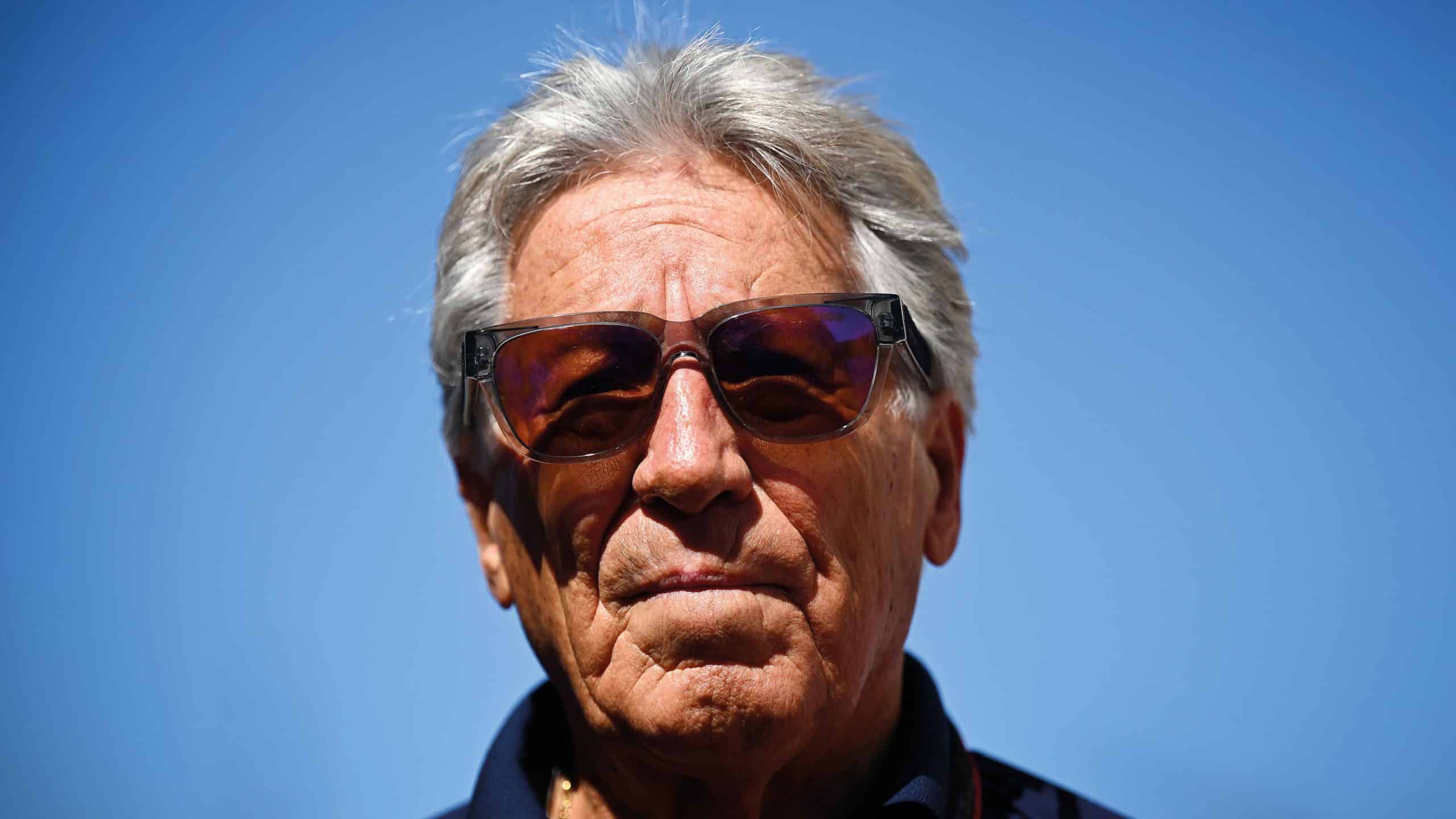
Getty Images
Andretti Global, Michael’s racing empire based in the US, is teaming up with General Motors and the Cadillac brand in its ambition to enter Formula 1. This is big news, especially for his father Mario who returned to Europe to race in grands prix in the 1970s and eventually won the F1 world championship in 1978.
For Mario the new project is yet another adventure for a family steeped in motor sport. As you might expect, he’s keen to talk about it, upbeat about the prospects and has no desire to dwell on the somewhat cool response from some of the existing teams.
“For me, I’m living this for Michael. I never had the ambition to be a team owner, but this keeps me close to the sport that I love so much,” he explains. “I fell in love with grand prix racing when I was just a young lad growing up in Italy. It’s what gave me the desire, the ambition, and it’s been my whole life. I’m so proud of Michael’s ambition to compete at this level.
“Sometimes, honestly, I ask myself, ‘Do we really need this?’ – and the answer is yes, we do, we actually do. All along there have been headwinds but you have to have the resolve, the relentless pursuit of your goal, and there’s always the opportunity to succeed. A lot of things have been discouraging, but there’s encouragement. The support from the fans, the people who love the sport, has been so strong.”
Did he, I wonder, feel that their plans have been treated fairly, considered with due respect by both F1, media rights holder Liberty Media and the FIA?
“The new FIA president, Mohammed Ben Sulayem, really understands the importance of growth,” says Mario. “He respects us, he understands our resolve, and if we meet the prerequisite requirements we will be welcome. Now we have secured a new major manufacturer in General Motors to be part of F1. They have resisted this forever, never participated at this level, and now they’re as excited as we are. What’s wrong with that? It’s got to be good for all of us, the growth of F1, the sport as a whole. This is the reward we’ve been looking for after some of the negatives that we’ve had to overcome. We know there’s a process that has to be worked through, we understand that, but we’ve done everything that was asked of us and, so far, we’ve delivered.”
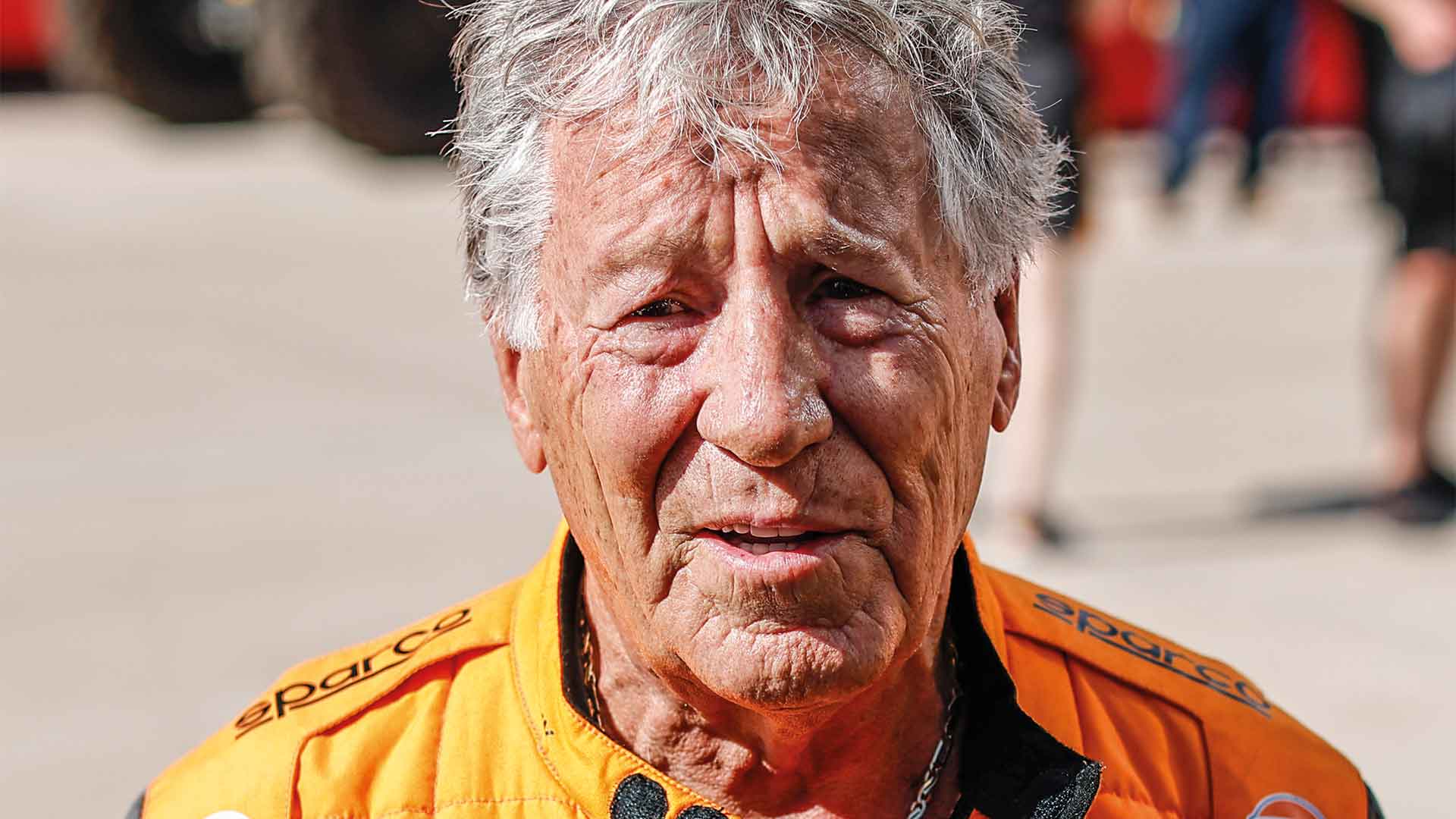
Mario is now 82 and he’s determined to see the Andretti name back on the F1 grid – within three years
Getty Images
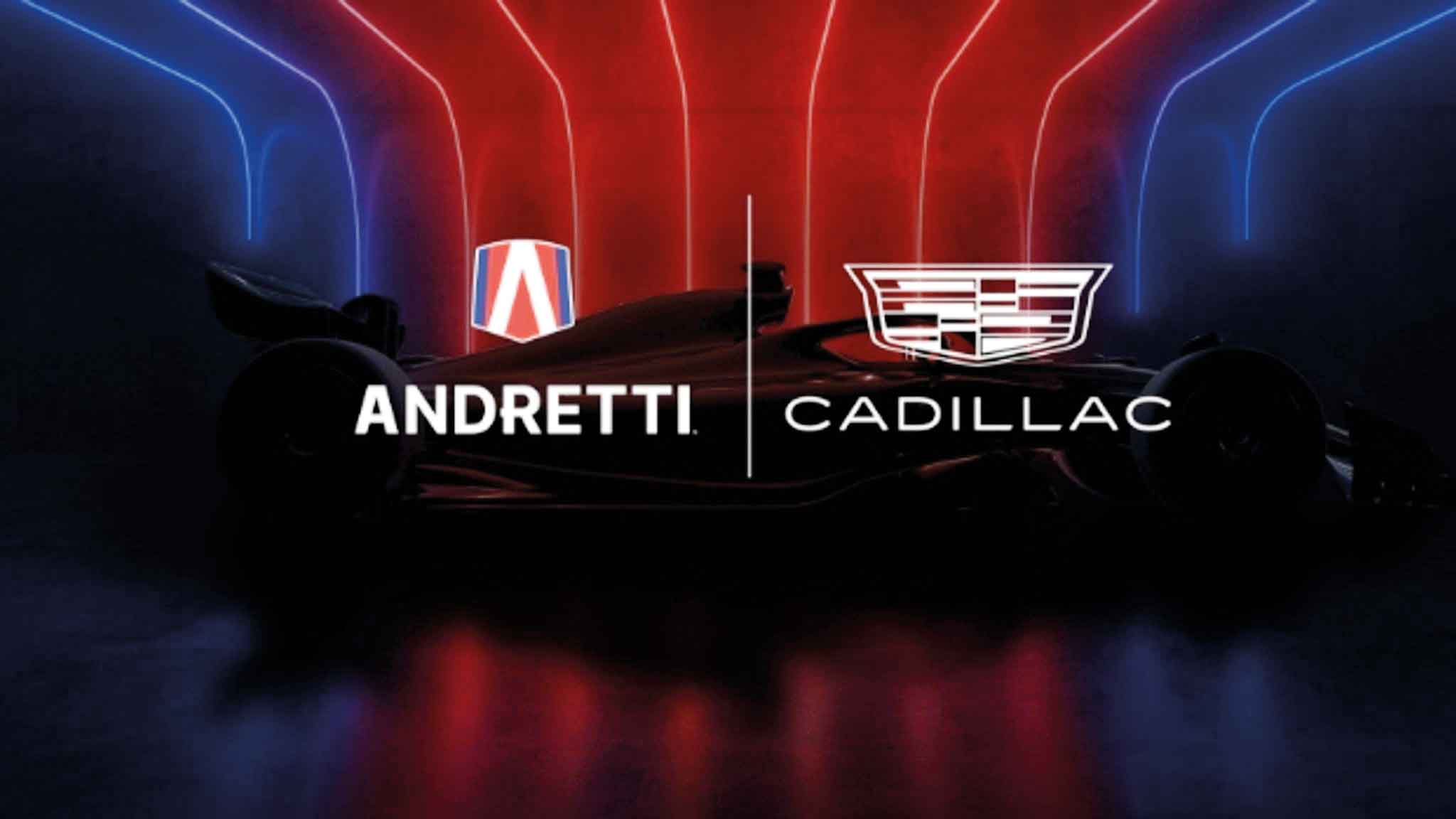
Andretti Cadillac’s plan faces opposition.
NurPhoto
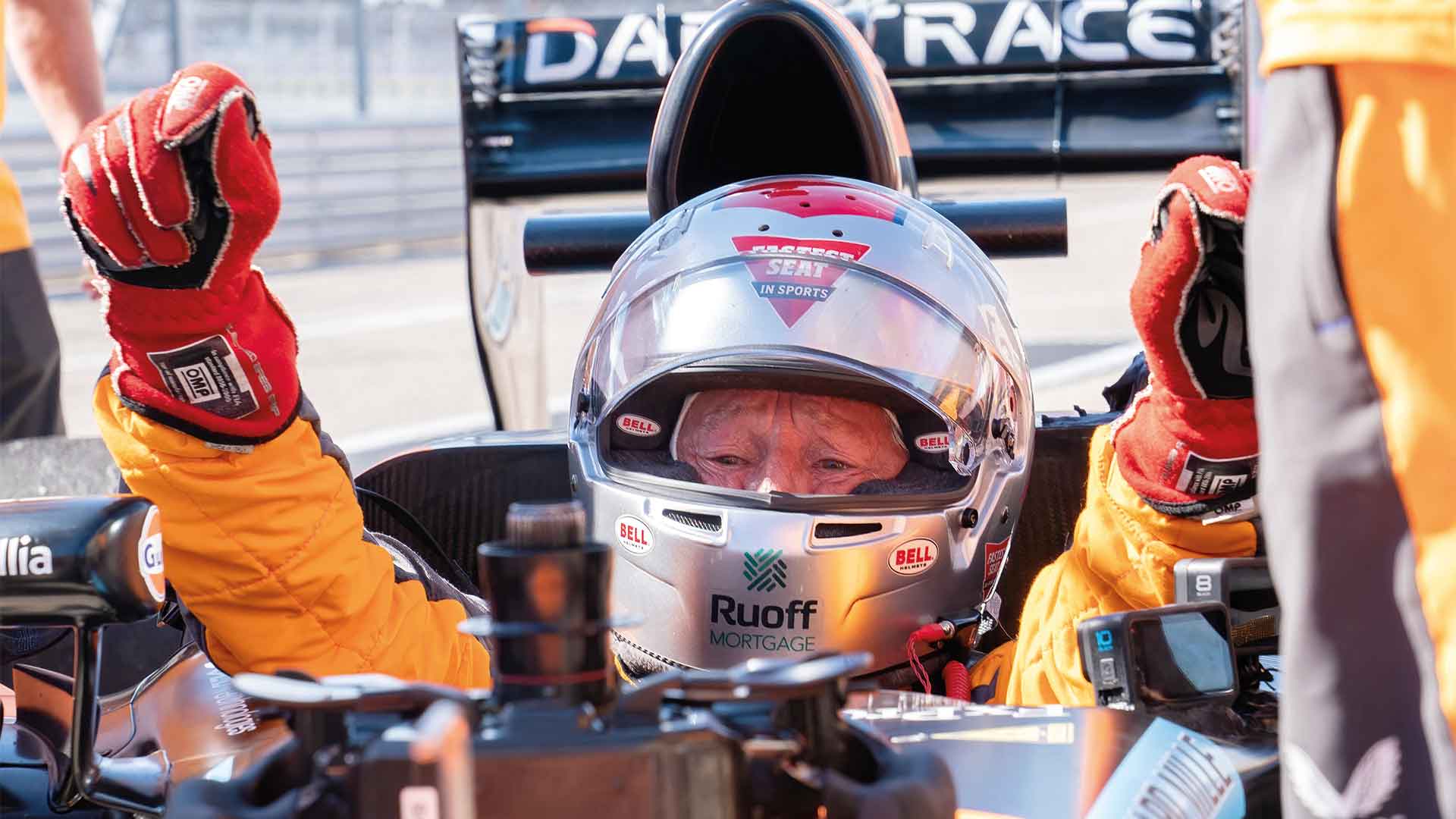
Mario in a McLaren at the 2022 US GP – he loved it
Getty Images
So far, so good, as Mario says, but how far along the line is Andretti Global with the infrastructure, the investment, the preparations for such a complex and ambitious venture? “Michael’s team has already invested heavily in this project, without any assurances, so they have a lot to lose if F1 decides they don’t want us,” he says. “But they need to prepare so they don’t have to start from scratch. There’s a lot going on. They’re on their way, and I have reason to feel very positive. It’s a new year, a lot of good things have been happening – that’s where we are. I don’t dwell on the negatives. Of course everyone is entitled to their opinion. It’s not a perfect world. We are honest in our approach and we’re willing to do whatever it takes to reach our goal, that’s what drives us. It’s what we love, and that’s not gonna change.”
How much scope is there for F1 to become even bigger than it already is in America, with huge crowds, new circuits and three races this year, more than any other country, thanks to the addition of Las Vegas to the schedule?
“There is incredible investment in F1 here,” Mario replies. “I’ve just been talking to Tom Garfinkel, CEO of the Miami Dolphins. They’re spending over $100m on a new paddock area. They have their eyes on the future. Then there’s the money going into COTA at Austin and in Las Vegas. I was in Vegas last week and right next to the hotel where I stayed they’re building a permanent paddock for the future. There’s positive growth – nothing temporary, not like the old days at Dallas or Phoenix when we’d be lucky to get through a weekend.
“We should rejoice in the way F1 is going in the States”
“It’s the same for Michael. He’s in this for the long haul, and we should rejoice in the way F1 is going in the States. There was a time when F1 was almost non-existent here, the fan base was dormant, then all of a sudden the whole thing exploded with Netflix. They’ve done a tremendous job, so let’s feed this bubble and do it in the right way. We’re not asking for any favours. We’re bringing something to the party, and we have something meaningful with General Motors who want to be represented in the best possible way in the European market.”
Mario’s career, his time in F1, his whole life experience in the sport, enables him to see the big picture, to advise when and where needed. Is he the wise old owl perched above the project?
“Michael has been trying to lure me in and give me some kind of official position, but I don’t want or need a specific job. I just tell him I’ll be on his side. He can count on me forever. I can reach areas where sometimes he can’t. I know a lot of people. I’m his biggest cheerleader. Hey, you know, I wanna be the first to test the first race car, give it the first run out on the track, do some big burn-outs. So yeah, I need to stay young and healthy!”
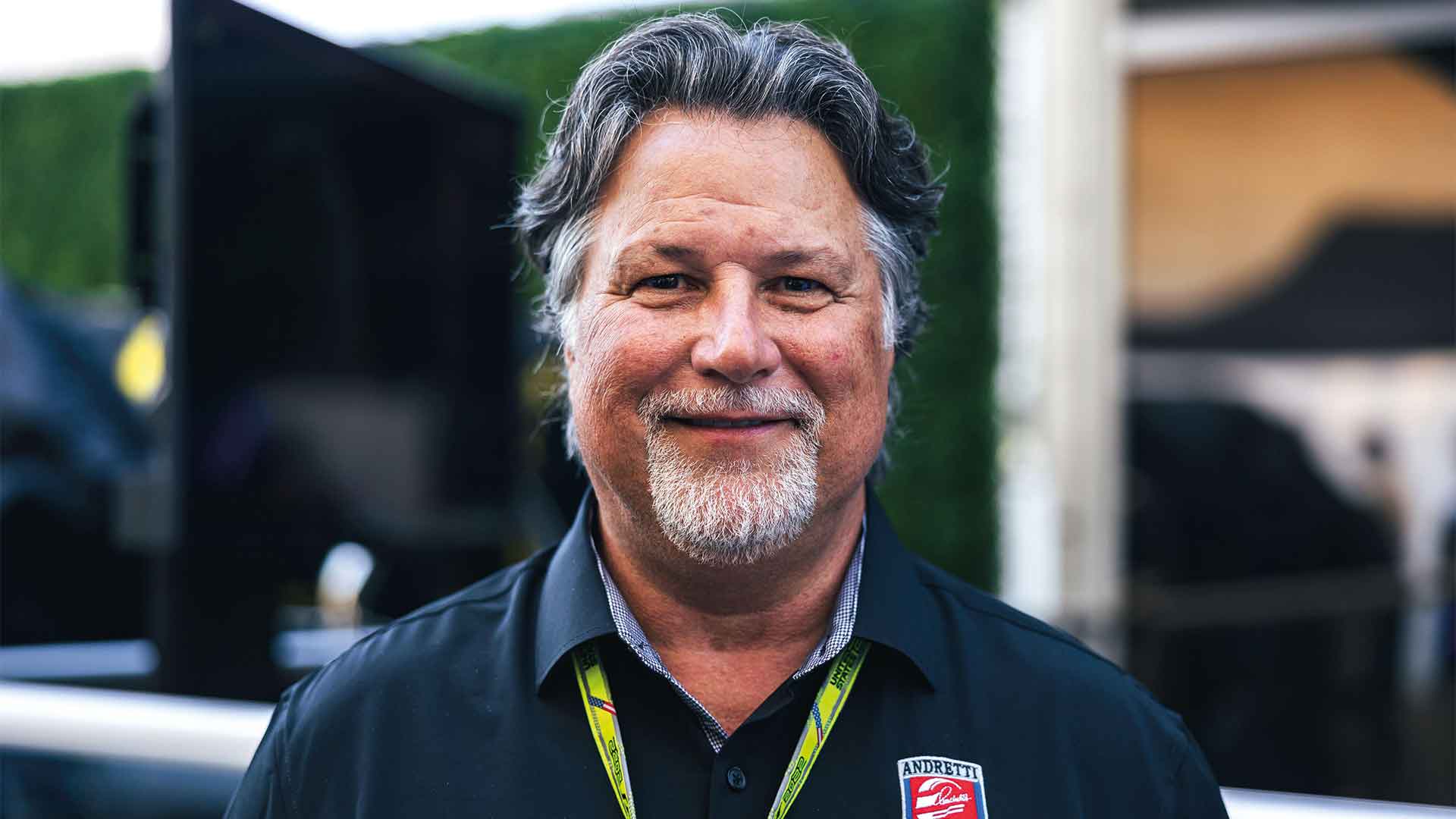
Andretti has cleared the first hurdle but now faces the judgement of FOM
Alamy
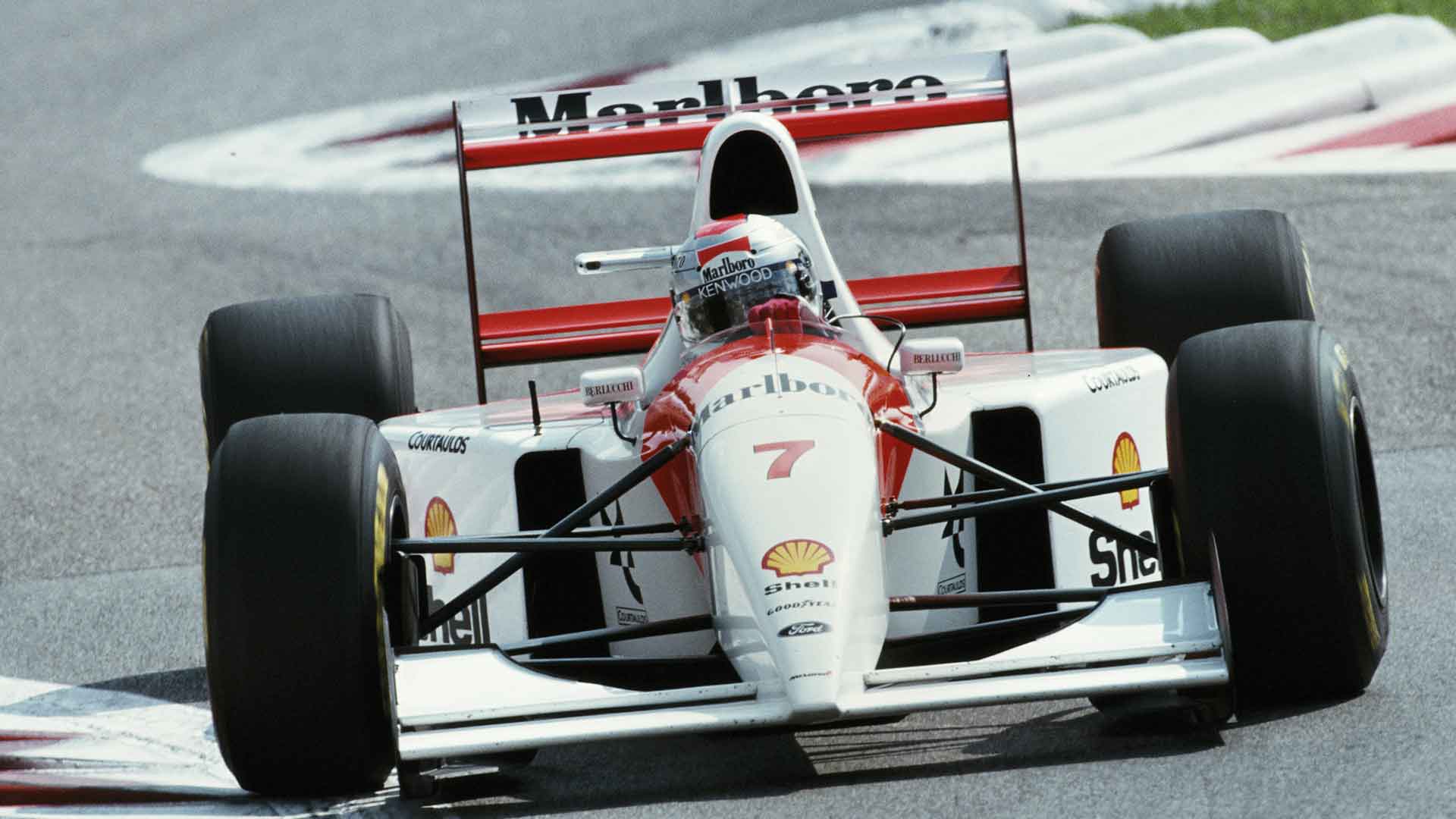
Best finish – third at Monza.
Getty Images
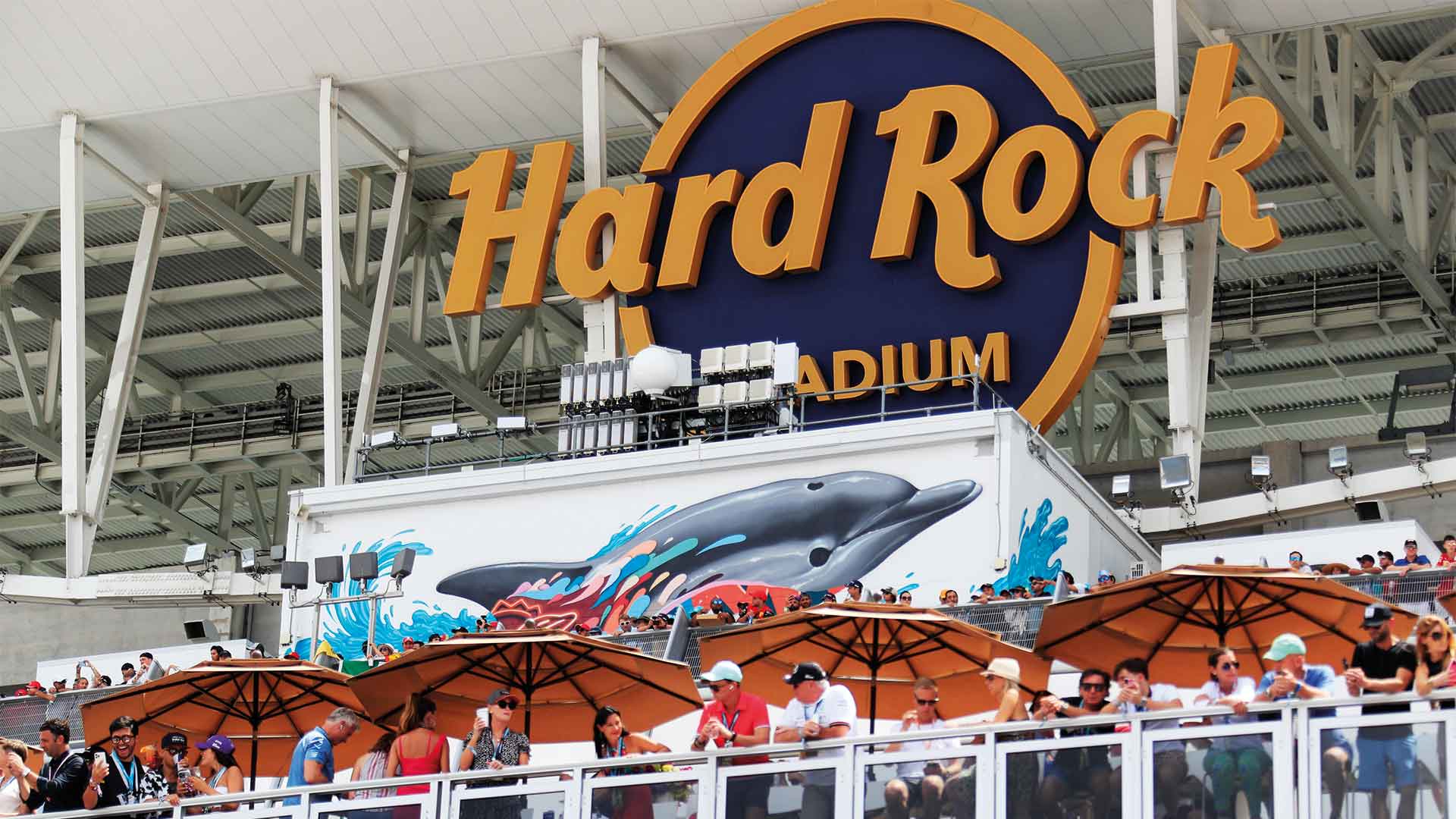
The US has switched on to F1
Getty Images
What was it like coming to F1 from America back in the late 1960s? Was he welcomed into the fold? Did he immediately adapt to a sport that was very different from his world of IndyCar or NASCAR?
“Getting there was my passion,” he says. “It was what drove me right from when I came to the States from Italy. As a boy I’d seen the grand prix cars at Monza, Alberto Ascari in his Ferrari, and I just wanted to go racing. You know, I was sitting in a midget car, on a dirt track in 1963, about to win my third race of the day and all I could think about was wanting to be in Dan Gurney’s shoes.” By then, Gurney was already well-established in F1.
“When I won my first road race, at Lime Rock on the road course, I was thinking about F1. In 1965, when Jim Clark won at Indy, I was rookie of the year, and I told Colin Chapman, ‘Some day I want to be in F1.’ And he said, ‘Mario, when you think you’re ready, call me, I’ll have a car for you.’ I tell ya, I jumped about 40ft in the air. So, when it came to 1968, I was ready, and, lo and behold, I put that Lotus on pole at Watkins Glen, ahead of Jackie Stewart and Graham Hill. It was help from God and I’d been given the biggest gift in life – to do what I really loved and come away with my ambitions fulfilled.”
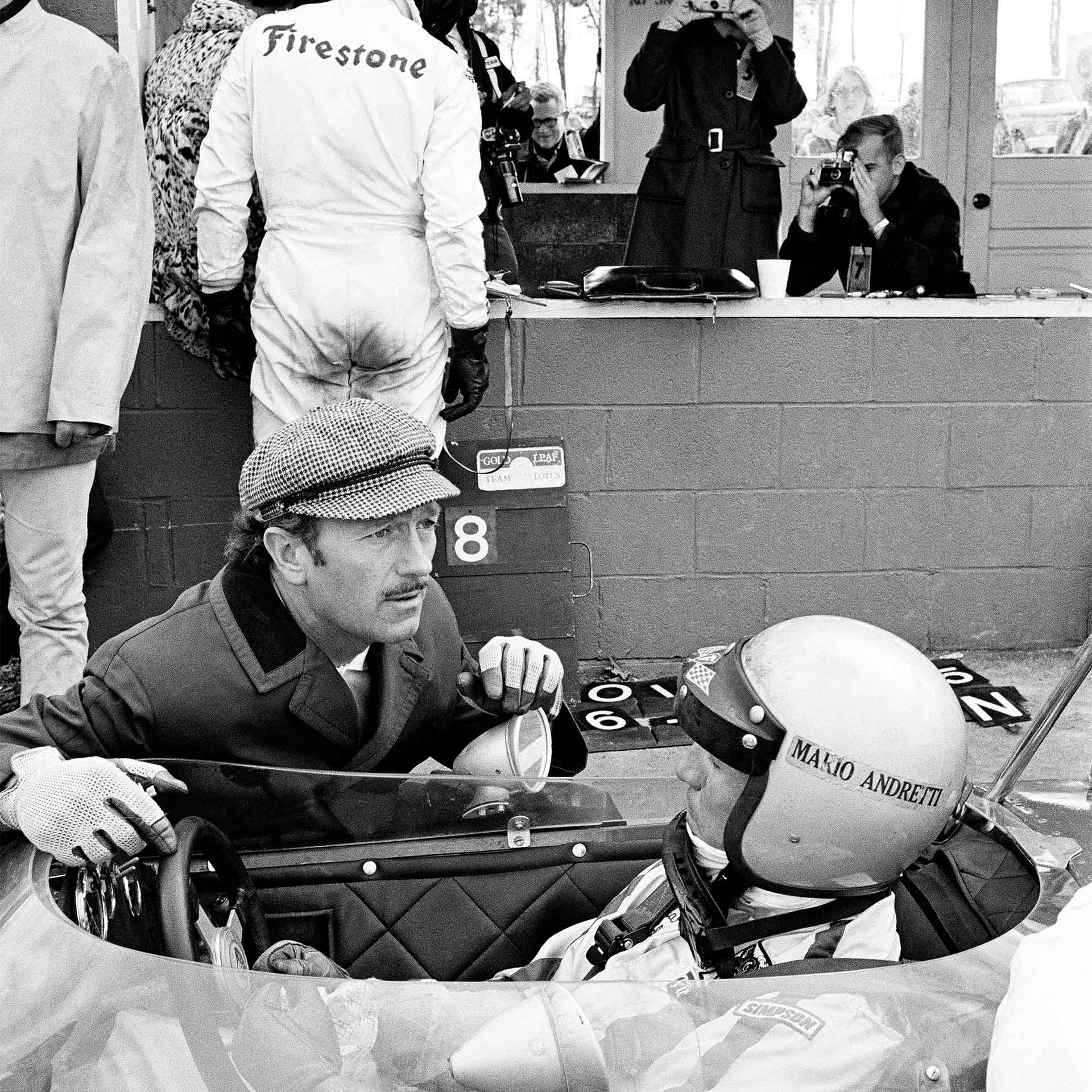
Colin Chapman was keen to give Mario a Lotus drive – here in practice at Watkins Glen.
Getty Images
Judging by first responses, Michael and his team might experience a little frost from their rivals if/when they do make it on to the F1 grid. It wasn’t like that for Mario.
“I always felt I was welcome,” he recalls. “It was like I was part of the family. Look, a racer is a racer, we understand each other, then you have to go out there and prove yourself. Don’t say it, just do it. I still communicate with my mechanics from 50 years ago, the guys from Ferrari, from Lotus. These are close relationships that develop over the years. It’s like a family. I go to races now. I feel welcome. Racing is my world, period.”
“I still communicate with my mechanics from 50 years ago”
One of the challenges for an American driver or team is making a total commitment to racing in Europe and beyond. You can’t have your mind on two camps on opposite sides of the world, as many have discovered as they strive to make it to the top step in grand prix racing. “Yeah, but it’s different now,” says Mario. “Back in the day I couldn’t afford to commit to a full-time drive in F1 until 1975 with Parnelli. My earnings were so much higher in the States and I had a young family. This meant I’d had to turn down offers from Chapman and from Ferrari and so, in ’71, Emerson Fittipaldi got the number one Lotus drive and we all know where that led.
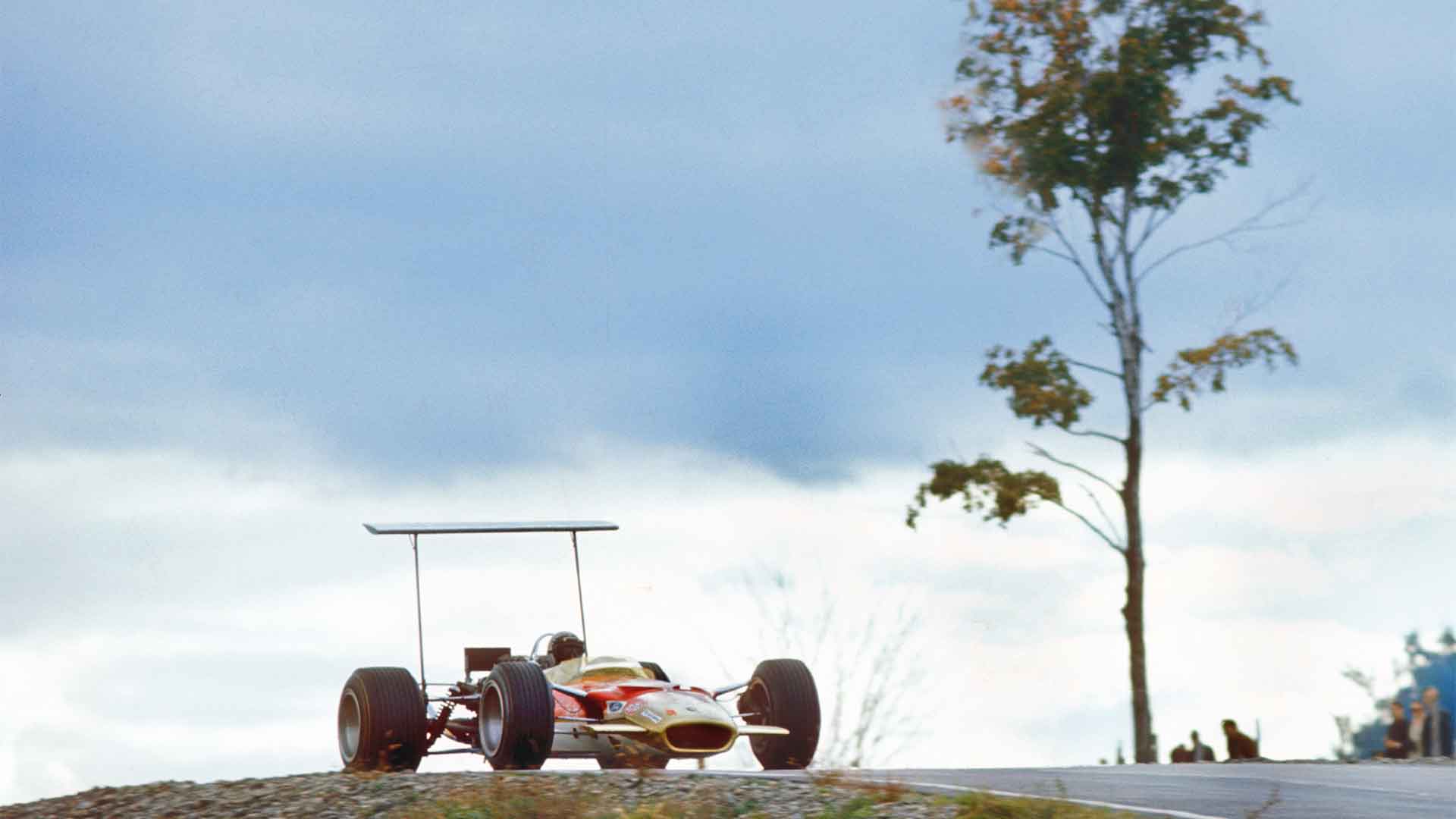
Mario stunned during his Formula 1 debut with a pole at the 1968 US Grand Prix.
Getty Images
“All of a sudden, in the mid-70s, I knew I had to make a full-time commitment – I wasn’t getting any younger, and the family was more secure. These days you have to make a total commitment, yes, but in ’78 I won the world championship, three IndyCar races for Roger Penske and the IROC Championship. I didn’t have to give anything up.
“As for Michael, people say he didn’t commit to Formula 1 as a driver, but he was ready to make the move to Europe. He had a place lined up to live. In 1993 Ron Dennis was waiting to find out what Ayrton Senna was going to do with Williams [for 1994]. He couldn’t guarantee to pick up the option with Michael, and Michael was afraid it was all getting too late so he secured himself a ride back in the States. But maybe he should have been more patient.
“I told him over and over again, and he would have been just fine at McLaren if he’d chosen to stay. He was impatient but he was capable, trust me on that.
“To have the power of General Motors behind us makes me sleep nicely at night”
“His ambitions, though, were different, as we see today. He stopped driving at the top of his game and now he relishes being a successful team owner with ambitions to bring Andretti to F1 as soon as he can.”
Let’s get back to the future: this plan for a new grand prix team in partnership with General Motors. This is perceived as a big deal, so how did Michael achieve this important step forward on the road to his ultimate goal?
“Indeed, it’s a big deal. The top management at General Motors saw an opportunity to expand the Cadillac brand, in Europe especially, and they see this as the right place at the right time. So you could say it was timely, and they’ve looked at all the synergies between us. They’ve looked at every aspect of what F1 is today, and I think they believe in our efforts. They are as excited as we are and to have the power of General Motors behind us makes me sleep very nicely at night.
“We cannot give a date, hopefully before 2026, but we are working very hard to get there as soon as is humanly possible. Hey, like I said, when I do that first burn-out, we’re in.”
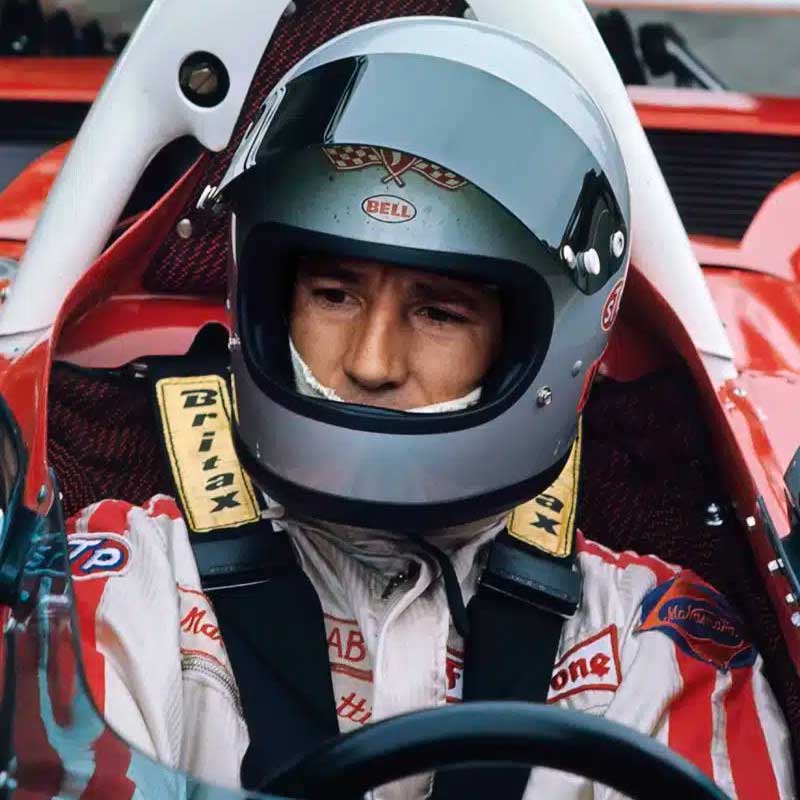
Mario in 1971 driving for Ferrari, the year of his first F1 victory.
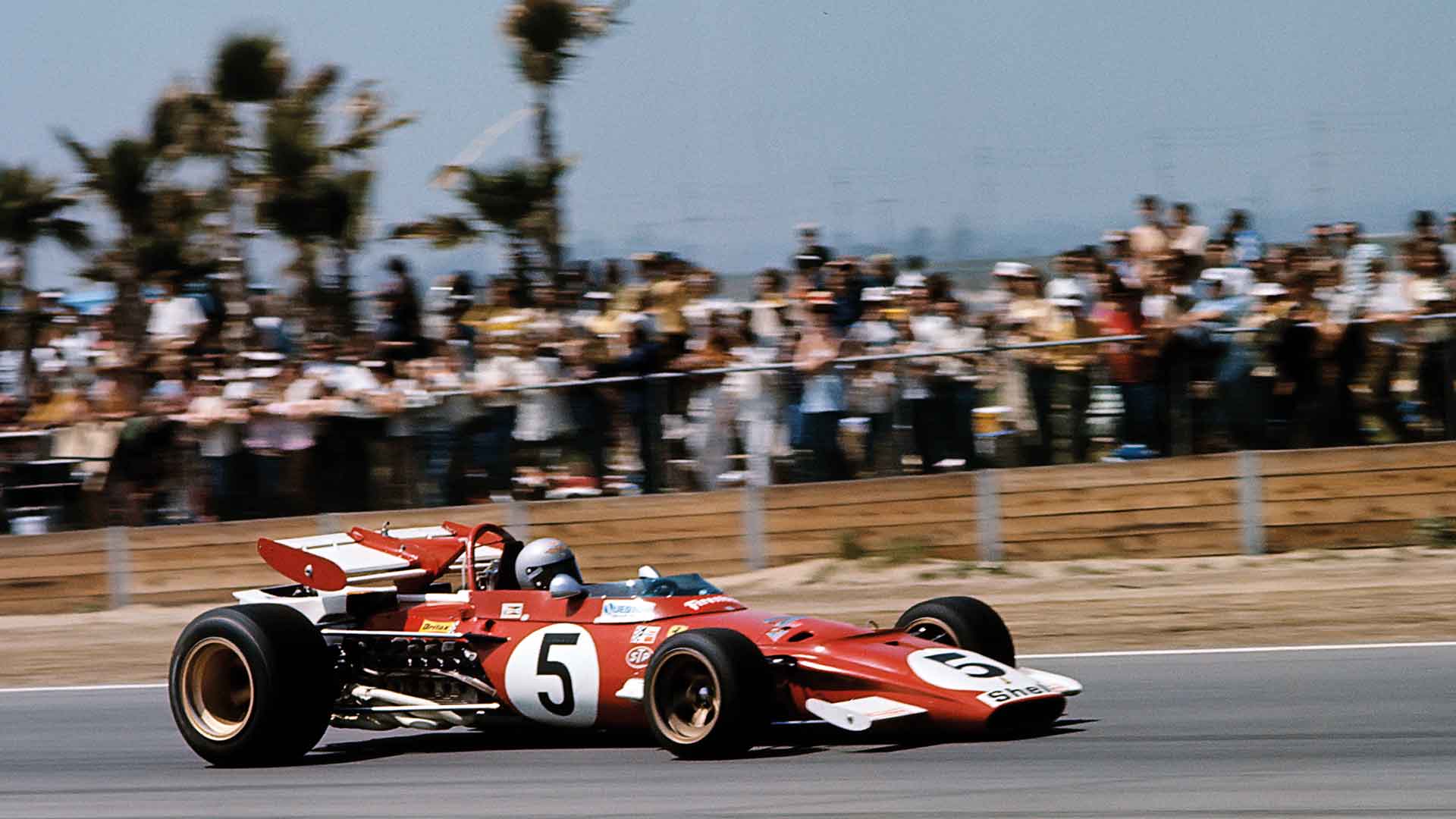
Ferrari 312B at the non-championship Questor Grand Prix, March 1971 – which Mario won
Getty Images
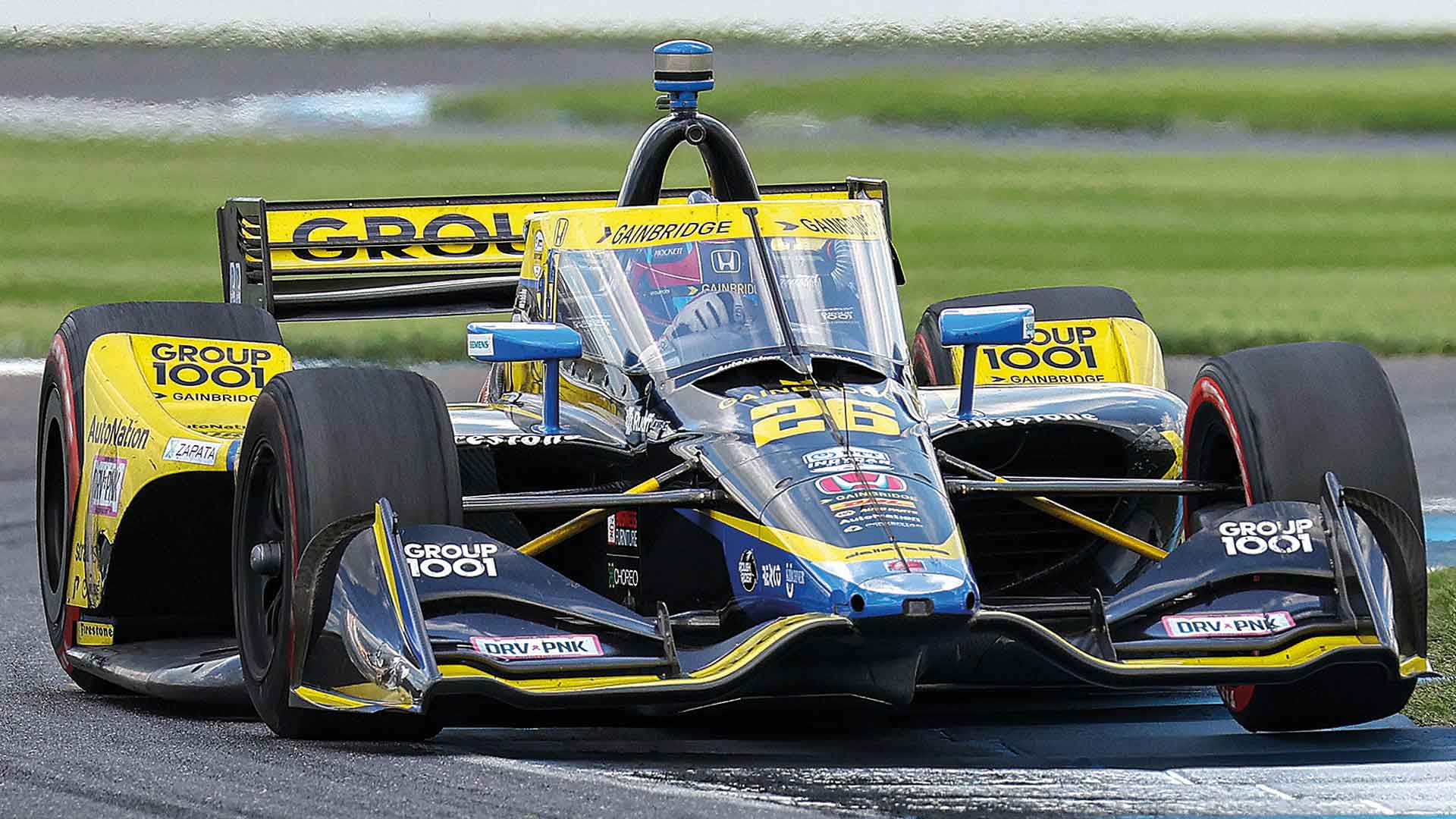
In October, Colton Herta, signed a long-term deal with Andretti Autosport. Will he make the switch from IndyCar to F1?
Getty Images
The prospect of the Andretti dynasty taking its place in the F1 paddock, with at least one American driver, is an intriguing development. There is resistance from the incumbent franchise holders but the FIA has made it clear that it will consider all “credible parties” who have expressed an interest in joining the world championship.
By partnering with a major motoring manufacturer the Andrettis are a step closer to becoming a truly global motor racing business over and above their hugely successful IndyCar, Indy Lights and Formula E teams. There may, however, be yet more bumps in the long and winding road that leads Michael and the guys from Indiana to the F1 grid.
